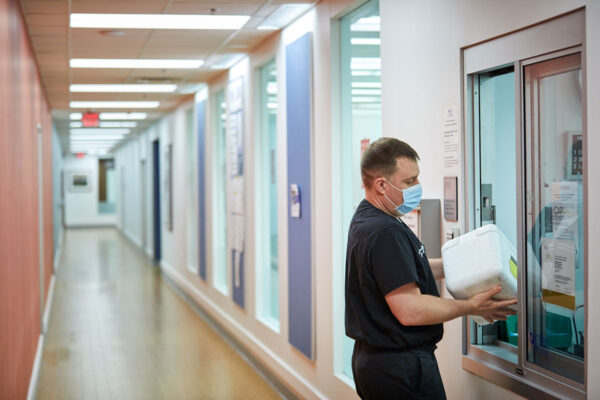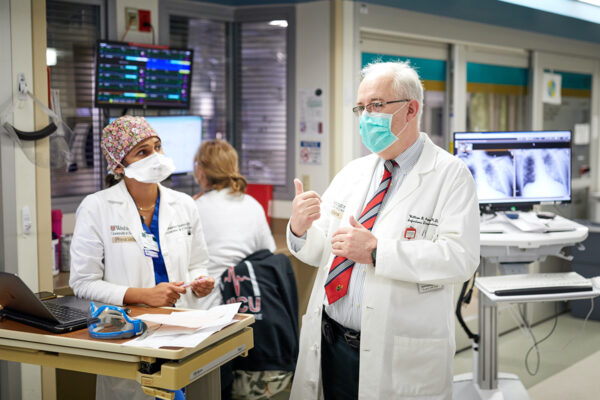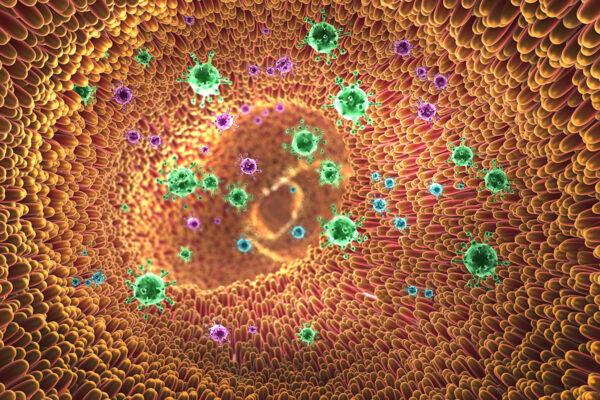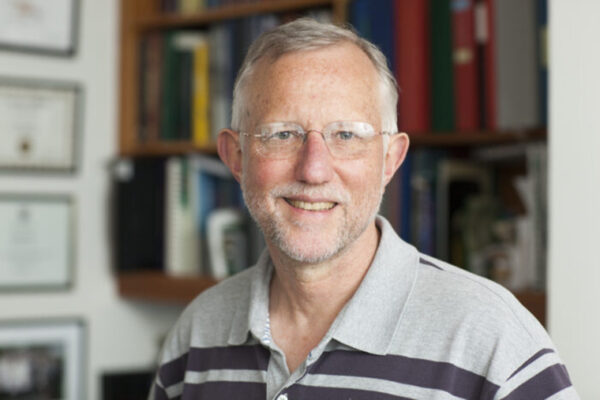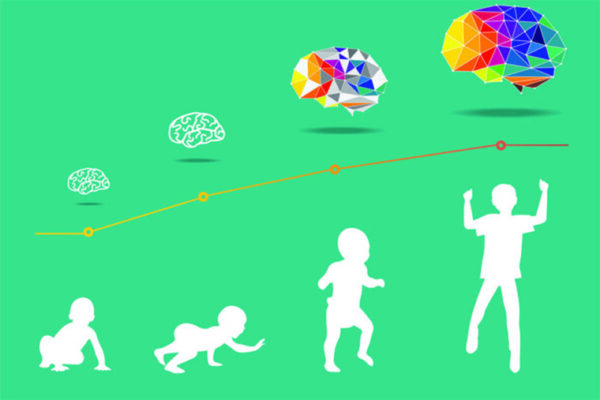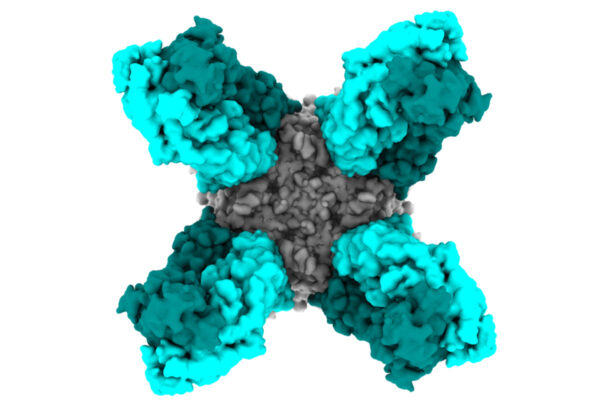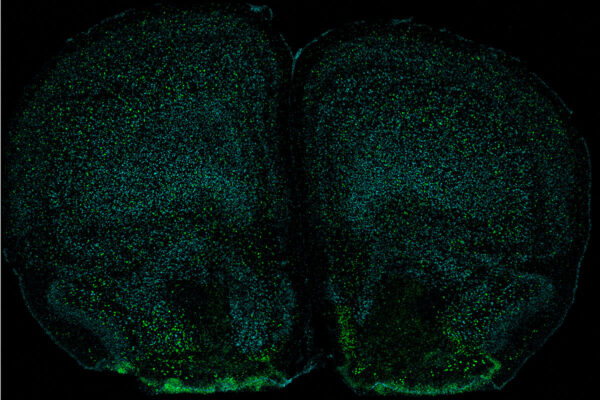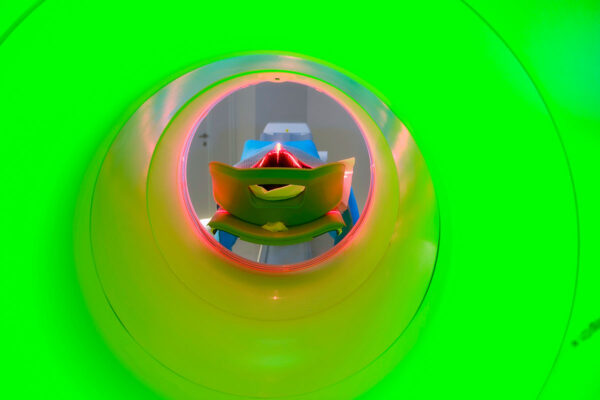Study: Respiratory failure in COVID-19 usually not driven by cytokine storm
A study led by School of Medicine researchers showed that, contrary to expectations, most people with severe COVID-19 do not suffer from unbridled inflammation. The findings suggest that anti-inflammatory therapies may not be helpful for most COVID-19 patients.
Cornea appears to resist infection from novel coronavirus
Although viruses such as herpes simplex can infect the eye’s cornea and Zika virus has been found in corneal tissue and tears, new School of Medicine research suggests the cornea can resist infection from the novel coronavirus.
Washington University begins recruiting participants for phase 3 COVID-19 investigational vaccine clinical trial
The School of Medicine is a testing site for a phase 3 clinical research study to evaluate the safety and efficacy of an investigational COVID-19 vaccine candidate from the Janssen Pharmaceutical Companies. The school will enroll up to 500 adults ages 18 and older in the St. Louis region.
Immune modulator drugs for COVID-19 focus of major NIH clinical trial
A new, international phase 3 clinical trial led by the Washington University School of Medicine and funded by the National Institutes of Health (NIH), will investigate the potential of three drugs to tame a dangerous inflammatory response seen in some COVID-19 patients.
Role of gut viruses in inflammatory bowel disease is focus of $8.5 million grant
School of Medicine researchers have received an $8.5 million grant to study the role of gut viruses in inflammatory bowel disease. Tools developed in the course of the project could accelerate research into other roles of the virome in health and disease.
Nobel awarded to Charles Rice for hepatitis C discoveries at School of Medicine
The 2020 Nobel Prize in Physiology or Medicine was awarded Oct. 5 to three scientists for groundbreaking research that led to the discovery of the hepatitis C virus. One of those scientists — virologist Charles M. Rice — conducted his seminal work while on the faculty of Washington University School of Medicine.
Basis of developmental disabilities focus of $11.3 million in grants
School of Medicine researchers have received renewed National Institutes of Health (NIH) funding for the Intellectual and Developmental Disabilities Research Center. The center’s researchers study genetic and environmental factors that contribute to developmental disabilities.
Antibodies protect against wide range of influenza B virus strains
Researchers have identified two antibodies that protect mice against lethal infections of influenza B virus. Together with an antibody that targets influenza A, the antibodies potentially could contribute to a drug to treat almost all flu cases.
Immune system affects mind and body, study indicates
School of Medicine researchers have discovered that a molecule produced by the immune system acts on the brain to change the behavior of mice. The findings help illuminate a surprising mind-body connection.
Imaging agent developed at Washington University spotlights inflammation
School of Medicine scientists have created a PET imaging agent that detects signs of inflammation. Such a tracer could aid diagnosis and study of diseases ranging from cardiovascular disease to cancer to COVID-19.
Older Stories
